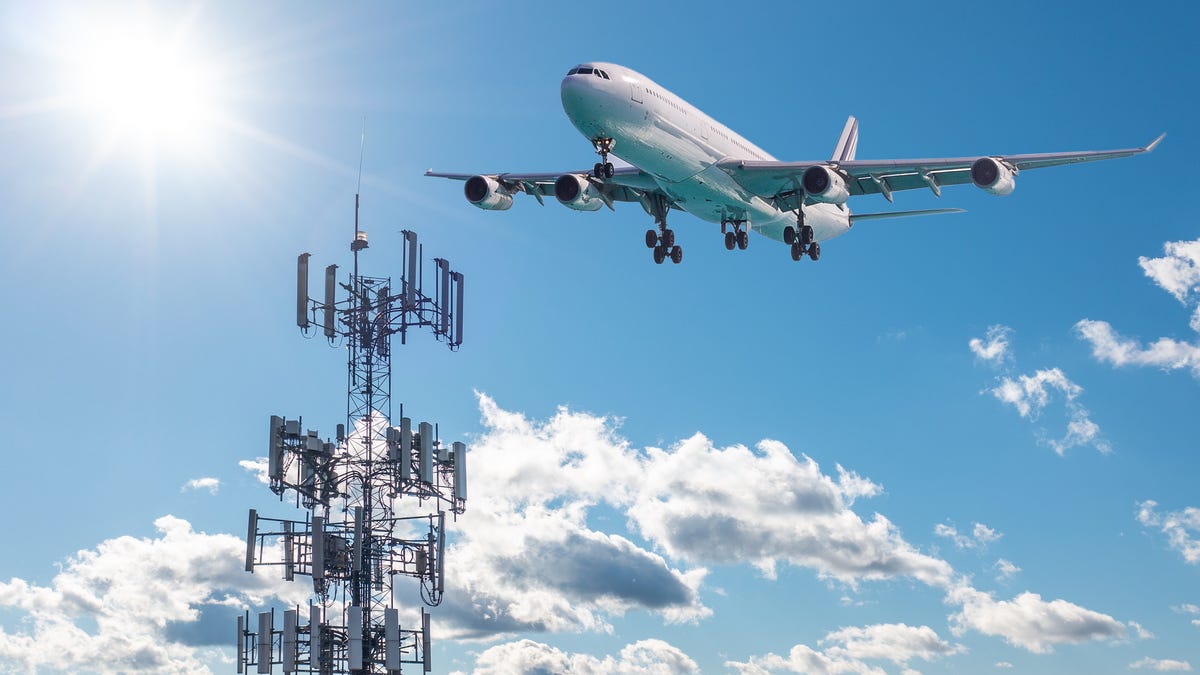FAA Reportedly Wants Smaller Telecoms to Stop Using 5G Around Airports, Too
Verizon and AT&T have voluntarily limited some 5G signals near airports, and the FAA may want smaller telecoms to join them.

To keep easing the US aviation industry into the 5G era, Verizon and AT&T earlier this year agreed to keep some 5G signal frequencies turned off around airports. Now the Federal Aviation Administration wants smaller telecoms and others using those frequencies to do the same.
The Federal Communications Commission has overseen Verizon's and AT&T's careful deployment of 5G in the midband C-band frequency range to temporarily limit coverage around airports, giving airlines time to upgrade their aircraft to ensure there won't be any signal interference that could endanger landings in rough weather. The big telecoms have voluntarily extended those 5G bans until July 2023.
Now the FAA has written to the National Telecommunications and Information Administration, though FCC chair Jessica Rosenworcel was copied, asking that 19 smaller telecoms and other organizations broadcasting in C-band be mandated to stop emitting signals in that range, as reported by Reuters.
The letter, said to be written by FAA Administrator Billy Nolen, voiced concern for aviation safety "if the US government does not codify certain additional operating limits in the 5G C-band environment." If the NTIA chooses not to establish those mandates, "the FAA would be forced to take immediate steps to ensure the safety of the traveling public."
It's not clear whether the smaller telecoms and signal emitters would also be banned from C-band 5G until July 2023, nor what kind of action the FAA would take if the NTIA does not enact the requested mandate. The FCC deferred to the NTIA for comment. Neither the FAA nor NTIA responded to request for comment by time of publication.
The voluntary 5G bans that Verizon and AT&T agreed upon were the result of an often acrimonious saga when they were poised to activate their C-band 5G service in January. The FAA and aviation industry said that frequency range interfered with aircraft altimeters, which helped pilots land in low visibility and disruptive weather conditions.
The two big telecoms first agreed to limit C-band 5G around airports until June 2022 while airlines checked their fleets and upgraded equipment when necessary, and extended the ban again to next year. Earlier this month, aviation industry advocates petitioned the FCC to make those restrictions permanent.

